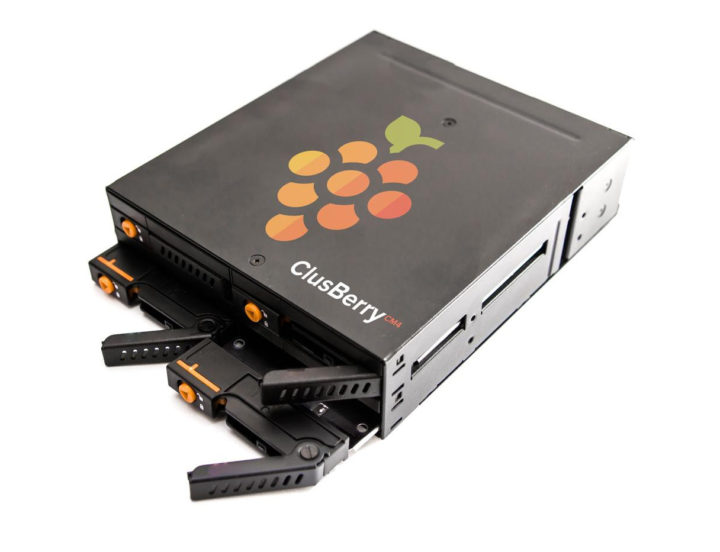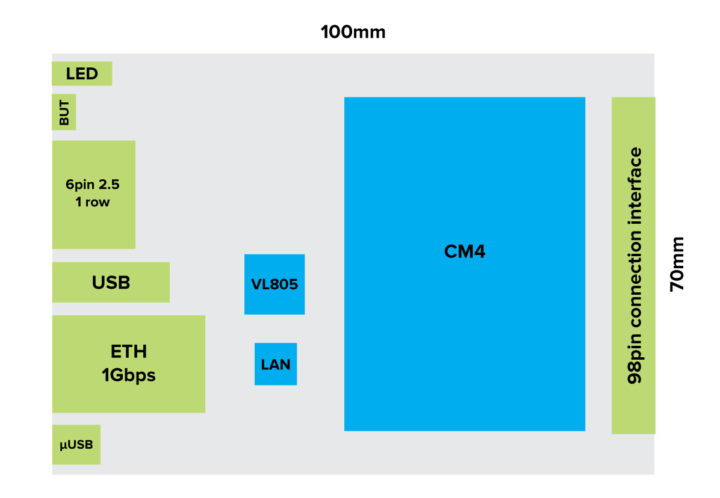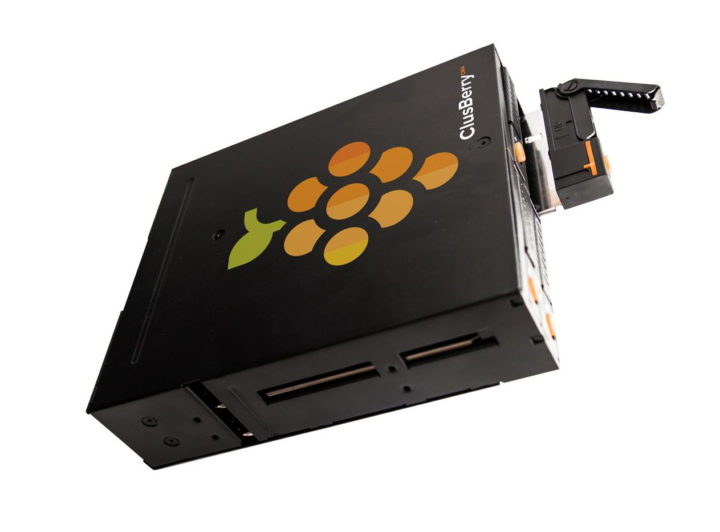TECHBASE ClusBerry Rack supports up to four Raspberry Pi CM4 based modules which can be added and removed on the fly thanks to a lockable mechanism that reminds me of hot-swappable drives found in NAS.
Using the same ClusBerry I/O mainboards as found in the earlier ClusBerry 9500-CM4 and ClusBerry-2M industrial systems, each Raspberry Pi Compute Module 4 inside the ClusBerry Rack offer one Gigabit Ethernet port, one USB host, one micro USB service port, and an RS-232/485 serial port.

But based on the PDF we’ve received, you should be able to create a system with four modules offering the following features each:
- Optional video output – HDMI
- Networking – 1x Gigabit Ethernet port (option for 2x)
- USB – USB 2.0 host (note: that’s probably USB 3.0 as VL805 PCIe to USB 3.0 chip is shown on the block diagram), and a micro USB service port
- Serial – 6-pin RS-232/485 serial port
- Security – Optional TPM 2.0
- Misc – User LEDs and button
- 5V power input or optional 30W PoE

TECHBASE recommends software cluster management with Docker and K3s Lightweight Kubernetes. Each module can be configured for specific tasks such as a standard I/O gateway, a wireless modem, a router, an AI gateway with Google Coral Edge TPU module, etc…

ClusBerry Rack casing including ExCard modules and modems can be approximately 2 months, depending on the CM4 supply on the market and chosen expansion cards”, and they also announced the availability of the basic version of ClusBerry-2M within two to four weeks. There’s no specific product page about the new Cluster Rack, but eventually, more details may surface on TECHBASE website.
As a side note, I’ve heard from several sources that the Raspberry Pi CM4 is in short supply, and so hopefully (mostly) electrically compatible modules like SOQuartz or Radxa ROCK3 CM will be able to fill the void. Before you ask, I do not have details about ROCK3 CM yet, just the name…

Jean-Luc started CNX Software in 2010 as a part-time endeavor, before quitting his job as a software engineering manager, and starting to write daily news, and reviews full time later in 2011.
Support CNX Software! Donate via cryptocurrencies, become a Patron on Patreon, or purchase goods on Amazon or Aliexpress




